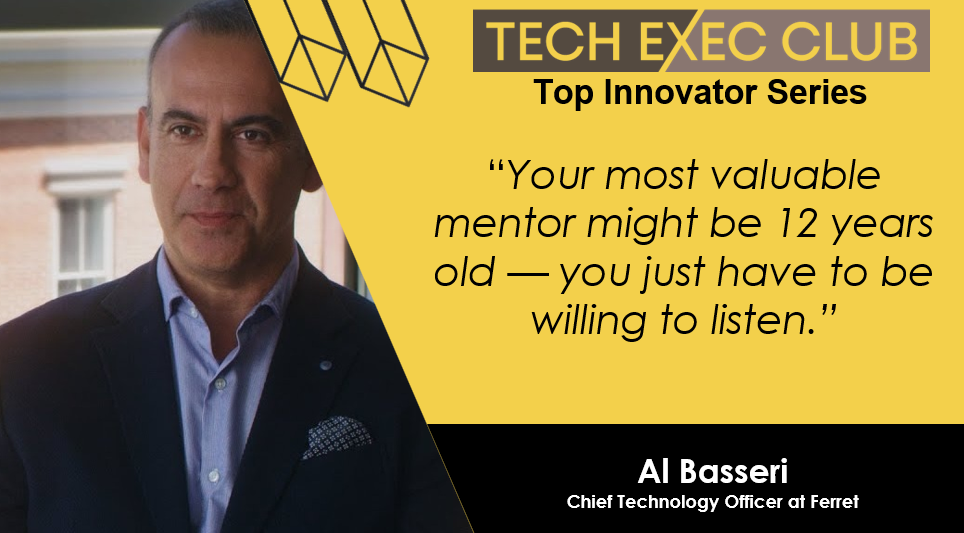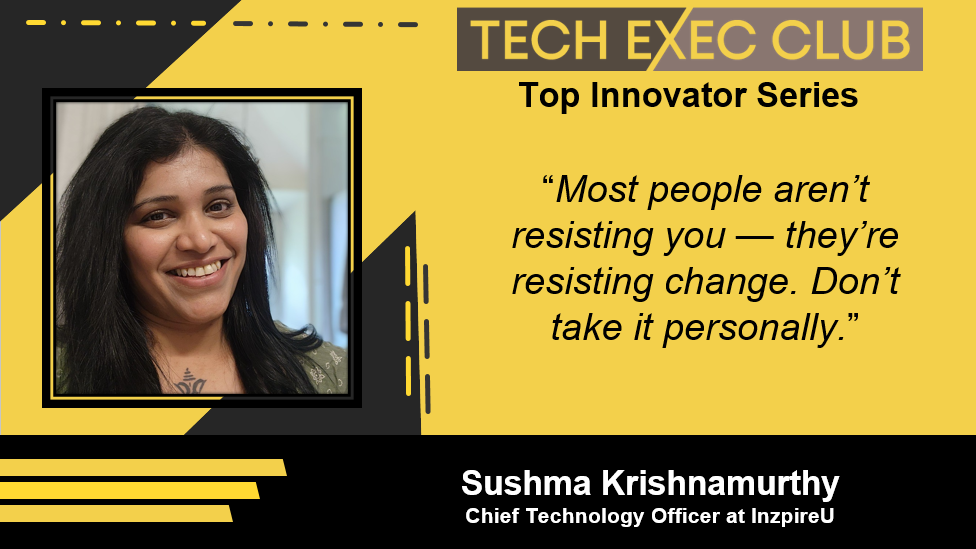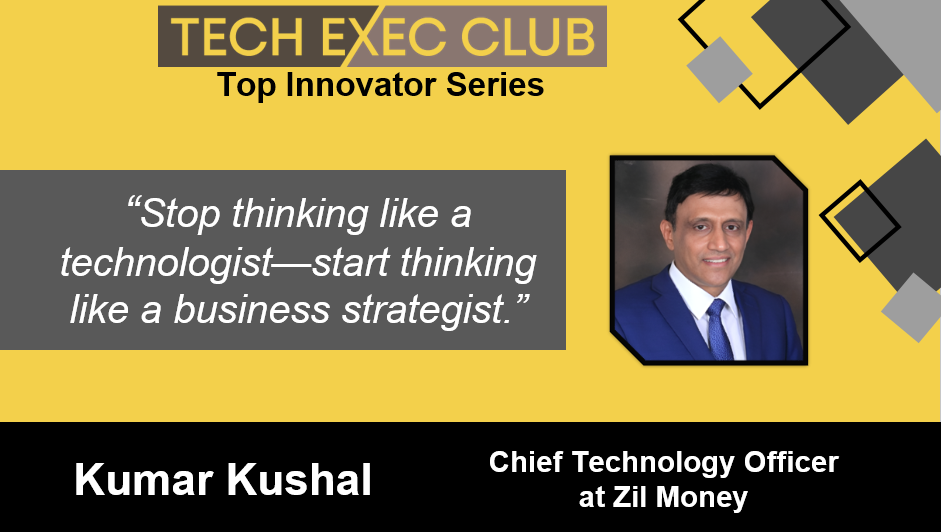Technology leadership is often assumed to be about deep technical expertise, but Scott Marean, CTO of Inflection Point Technology Advisory, challenges that notion. With a career spanning executive roles at multiple financial institutions and FinTechs (most recently at FIS), Marean has mastered bridging the gap between technology and business strategy. From a once reluctant manager to now a strategic leader, his journey has given him a unique perspective on what makes a successful CTO.
In this conversation, Marean shares the inflection points that shaped his leadership style, his approach to cultivating future leaders, and why he believes technology leadership is about much more than just technology. His insights offer a fresh perspective for aspiring tech executives and seasoned leaders.
The Evolution from Technologist to Strategic Leader
For many aspiring technology leaders, the path to the C-suite begins with a deep passion for coding, architecture, and system design. However, as Scott Marean discovered early in his career, technical brilliance alone does not make a great CTO. Instead, the ability to understand business strategy and align technology to drive growth separates the good from the great.
Marean’s journey started at Accenture, a company known for its rigorous management structure. At the time, the company enforced a policy that required developers to transition into management after four years—a policy he resisted so strongly that he left in frustration. “I was morally opposed to it,” he admits, due to his passion for technical expertise at the time.
However, his perspective shifted when he joined a small consulting firm. Unlike at Accenture, where he felt like one of thousands, this smaller environment exposed him to the direct impact of his work on business outcomes. His role naturally expanded beyond coding—he began conversing with clients about their broader business needs, not just their immediate technical challenges.
This shift in thinking—from seeing himself as a developer to seeing himself as a business enabler—became the foundation of his leadership philosophy. “It wasn’t intentional,” he says, “but once I started seeing the bigger picture, I couldn’t unsee it.”
Today, he emphasizes that understanding business strategy is essential for any technology leader. “The reality is, in modern technology, we can build anything. The question isn’t, can we? But should we? And that’s a business decision, not just a technical one.”
Cultivating Leadership: Identifying and Developing Future Tech Leaders
One of Marean’s most important leadership lessons has been cultivating leadership within his teams. Not everyone in technology wants—or is suited for—leadership, but for those who show potential, he has developed a unique and effective approach to mentorship.
Rather than forcing leadership training onto employees, Marean believes in allowing people to self-select into leadership development opportunities. One of his favorite methods is hosting leadership book clubs, where employees at various levels can voluntarily participate in discussions on leadership principles.
“It’s fascinating to see who shows up,” he says. “Some people light up when we talk about leadership and strategy. Others sit there, uninterested. That tells me much about who’s ready to grow as a leader.”
By making leadership development an open invitation rather than a mandatory process, Marean ensures that only those genuinely interested invest their time. He then focuses his mentorship efforts on those individuals, offering them coaching, additional responsibilities, and opportunities to contribute to strategy discussions.
At the same time, he recognizes that strong teams are built on diverse strengths—not everyone needs to be a leader. “Some people thrive as architects, testers, or specialists. That’s great. But for those who want to lead, I make sure they have the tools and opportunities to grow.”
His leadership philosophy is straightforward: identify those with the spark for leadership and help them develop those gifts and strengths.
Overcoming Challenges: The Art of Execution and Accountability
Despite his success as a leader, Marean admits that execution—ensuring that great ideas get implemented—has been one of his challenges. As someone naturally drawn to strategy and vision, he has had to be intentional about developing strong execution habits.
His Clifton Strengths assessment, a tool used to identify leadership strengths, revealed that while he excels in strategic thinking and relationship-building, execution ranked lower in his skill set. “That surprised some people,” he says. “But the reality is, I naturally gravitate toward roadmaps and market positioning rather than project management details.”
To overcome this, Marean follows a simple but powerful principle: trust but verify. He empowers his teams to execute and ensures accountability mechanisms are in place. “I trust my teams, but I also need to see the numbers,” he explains. “If something doesn’t look right, we dig deeper until we find out why.”
He also surrounds himself with strong managers who excel in operational execution, allowing him to focus on strategy while ensuring execution stays on track. “Leadership isn’t about doing everything yourself—it’s about knowing your strengths and building a team that complements them.”
By balancing vision and execution, Marean ensures that his leadership is not just about ideas but driving real, measurable business impact.
The Next Chapter: Private Equity and Mentorship
After spending over a decade at FIS, a company built mainly through acquisitions, Marean realized that his skills aligned perfectly with the private equity (PE) world. PE firms acquire mid-market companies and drive growth through operational improvements—something he had already been doing within FIS for years.
“In private equity, you’re overseeing multiple companies with different tech stacks, architectures, and leadership teams,” he explains. “That’s exactly what I did at FIS, where each acquired company, now a product, was like its own independent entity.”
Recognizing this alignment, Marean has been actively exploring opportunities to transition into a technology operating partner role within private equity. The challenge? Many PE firms prefer candidates who have led a company through an acquisition and exit process.
“They told me, ‘You seem like a great fit, but we want to see you take a mid-market company through that process first,’” he says. So now, Marean is focusing on gaining that experience, positioning himself as a portfolio company CTO for the next evolution of his career.
In the long term, he envisions a future where he balances work with mentorship, advising private equity firms and technology leaders while transitioning toward board roles. “It’s about playing the long game,” he says. “I want to spend the next phase of my career helping companies grow, modernize, and succeed.”
The Secret Ingredient: Systems Thinking and Feedback Loops
Marean’s most significant leadership insight is one that many overlook: everything is a system.
“I see everything as an ecosystem—a continuous loop rather than a straight line,” he explains. “Whether it’s software development, sales, or business operations, it’s all about feedback loops.”
He applies this thinking across the board:
- In product development, user feedback informs future iterations, creating a continuous improvement cycle.
- In sales and marketing, customer objections aren’t just roadblocks—they’re valuable data points that should be fed back into product strategy.
- In business operations, reducing process friction isn’t just about efficiency but accelerating revenue growth.
A simple example? Reducing software implementation time.
“If it takes 6–12 months to implement an enterprise software solution, that’s 6–12 months before you start seeing revenue,” he explains. “But if you can shrink that timeline to 1–3 months, you’re not just making customers happy—you’re accelerating revenue.”
This ability to see beyond individual processes and understand how everything connects makes Marean a strategic leader.
Key Lessons for Aspiring Tech Leaders
For those looking to follow in Scott Marean’s footsteps and transition from technical expertise to strategic leadership, he offers the following actionable insights:
1. Expand Your Business Acumen: A great technology leader isn’t just a technical expert; they understand how the company operates, what drives revenue, and how technology aligns with business goals. Start learning about finance, sales, and strategy.
2. Engage in Leadership Development: Take ownership of your growth. Join leadership discussions, read books on business and strategy, and seek mentorship. Don’t wait for someone to tell you you’re ready—develop the skills now.
3. Adopt a Systems Mindset: Stop seeing business functions as separate silos. Understand how sales, marketing, product development, and customer success interconnect. The best leaders think holistically.
4. Balance Strategy with Execution: Big-picture thinking is crucial, but execution is where real impact happens. Track progress with clear metrics, verify results, and adjust as needed. Strategy without execution is just wishful thinking.
5. Seek Out Growth Opportunities: Whether you’re moving into private equity, taking on a startup role, or expanding your leadership scope, push yourself beyond your comfort zone. Growth happens at the edge of your capabilities.
By following these principles, technology leaders can evolve beyond their technical roots and become architects of business success.
Scott Marean’s journey from technologist to strategic leader highlights an essential truth: the best CTOs are not just masters of technology—they are masters of business. By shifting his mindset early in his career, Marean developed a leadership style that balances technical expertise with business acumen, strategy with execution, and mentorship with personal growth.
His philosophy—rooted in systems thinking, continuous feedback loops, and identifying future leaders—offers valuable lessons for anyone looking to excel in technology leadership.
As he looks ahead to his next chapter in private equity and mentorship, one thing is clear: Marean’s influence on the tech industry will continue to grow. His journey is a blueprint for those who aspire to lead, innovate, and drive meaningful change.
Want to hear Scott Marean’s insights firsthand? Watch the full, live podcast interview [click here]






